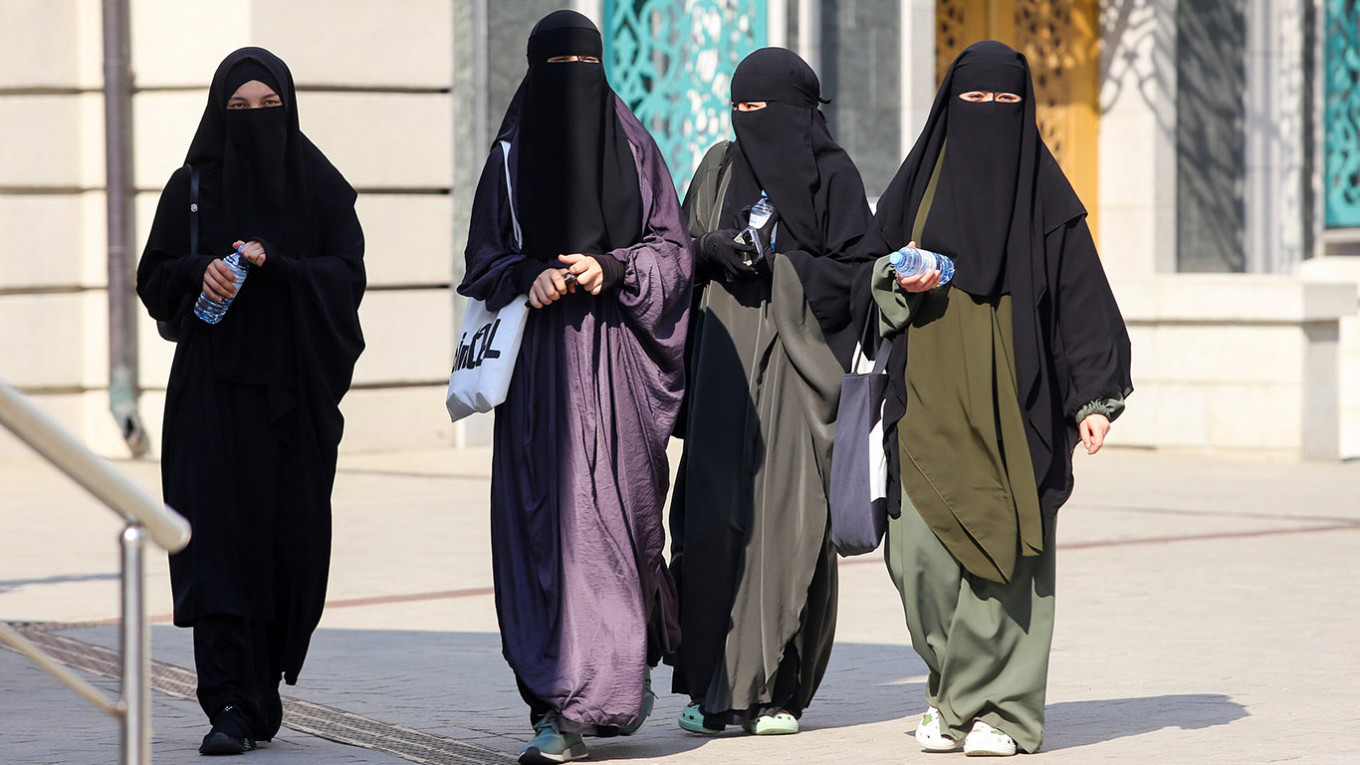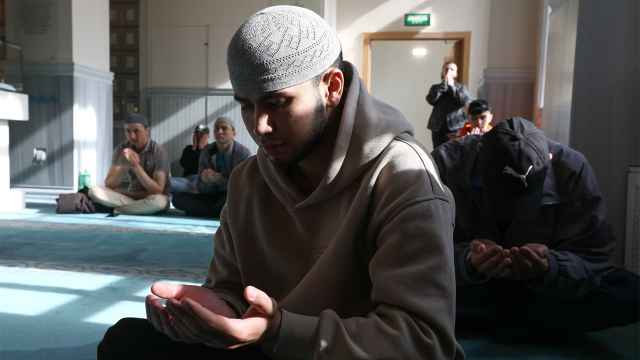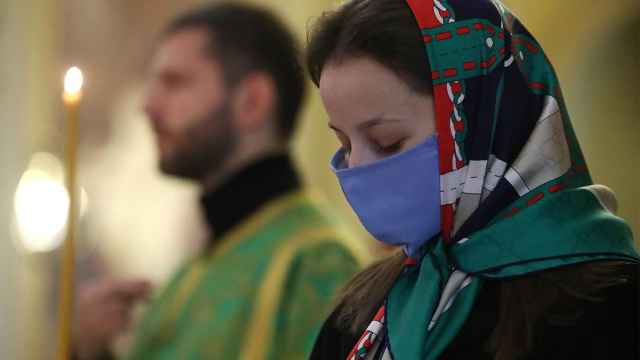Last month’s deadly attacks on Orthodox churches and synagogues in Russia’s North Caucasus republic of Dagestan have renewed the debate over introducing a nationwide legal ban on the niqab, a full-face veil worn by some Muslim women.
The debate was triggered by a report that one of the armed assailants had planned to escape from the manhunt by wearing a niqab. Though this report was not confirmed, local spiritual authorities in at least three Russian regions have since issued Islamic law rulings that ban the niqab, citing security concerns.
But what do these rulings mean in practice — and could Russia really follow in the footsteps of the 16 states, including some of its Central Asian allies, that have already banned the garment?
Here is what we know so far:
How many Muslims live in Russia?
Islam is one of the major religions in Russia with about 5% of the population or 7.15 million people identifying as Muslim, according to a 2022 survey by the Levada Center pollster.
It is also a dominant religion among the many Indigenous non-Slavic communities of the Caucasus and the Volga-Ural regions and in the republics they populate.
Most Russian Muslims adhere to the Hanafi school of Sunni Islam.
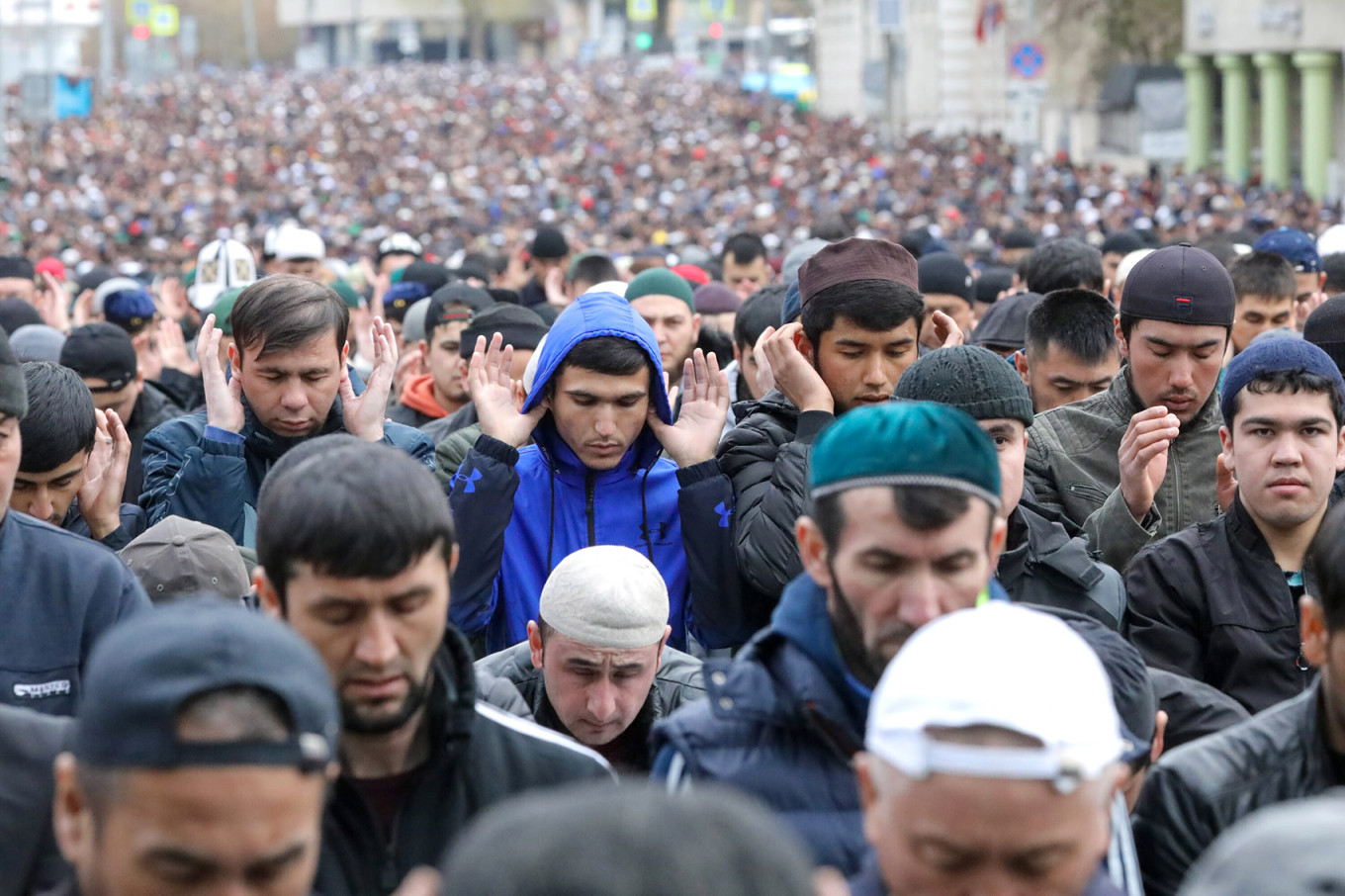
What does Russian law say?
Though Russia’s Constitution guarantees freedom of religion to all citizens, officials have been weighing restrictions on religious head coverings since the early 2000s — a debate fueled by a sharp rise of Islamophobia in the wake of Russia’s wars in Chechnya.
In 2015, Russia’s Supreme Court upheld a ban on wearing an Islamic scarf, the hijab, in schools imposed by local authorities in the Orthodox-majority republic of Mordovia, introducing the first legal precedent of its kind.
Following the ruling, reports of female Muslim students being expelled from educational institutions over their refusal to take off a headcover emerged from various corners of Russia, including the Vladimir region, the Rostov region and the republic of Tatarstan, where Islam is widely practiced among the Indigenous Tatar majority.
Are there proposed legal changes?
In May this year, State Duma Deputy Chairman Vladislav Davankov introduced a draft law that would grant Russia’s regional authorities and educational institutions the right to ban all types of Islamic headdresses in public places and schools.
And members of Russia’s Communist Party introduced a separate bill that puts in place a fine of up to 15,000 rubles ($170) for wearing clothing that hides one’s face in public.
Davankov’s proposal faced sharp criticism from the Coordination Center of Muslims of the North Caucasus, the region’s chief religious authority, as well as the muftis of Bashkortostan and Tatarstan.
Adam Dilimkhanov, a Chechen deputy in the federal State Duma and close ally of Chechen leader Ramzan Kadyrov, has also criticized the law, even vowing to “explain” the meaning of traditional Islamic values to Davankov in a thinly veiled threat.
“I would also like to remind Davankov that in Orthodoxy, women are also supposed to wear a headscarf as a symbol of love for God, femininity and humility," the RBC business daily quoted Delimkhanov as saying.
What is the Kremlin’s stance?
“We are not participating in this discussion,” spokesman Dmitry Peskov said when journalists asked him where the Kremlin stands in the ongoing debate.
However, President Vladimir Putin spoke out in favor of a hijab ban in schools in 2012, noting that Russia should follow in the footsteps of its “European neighbors.”
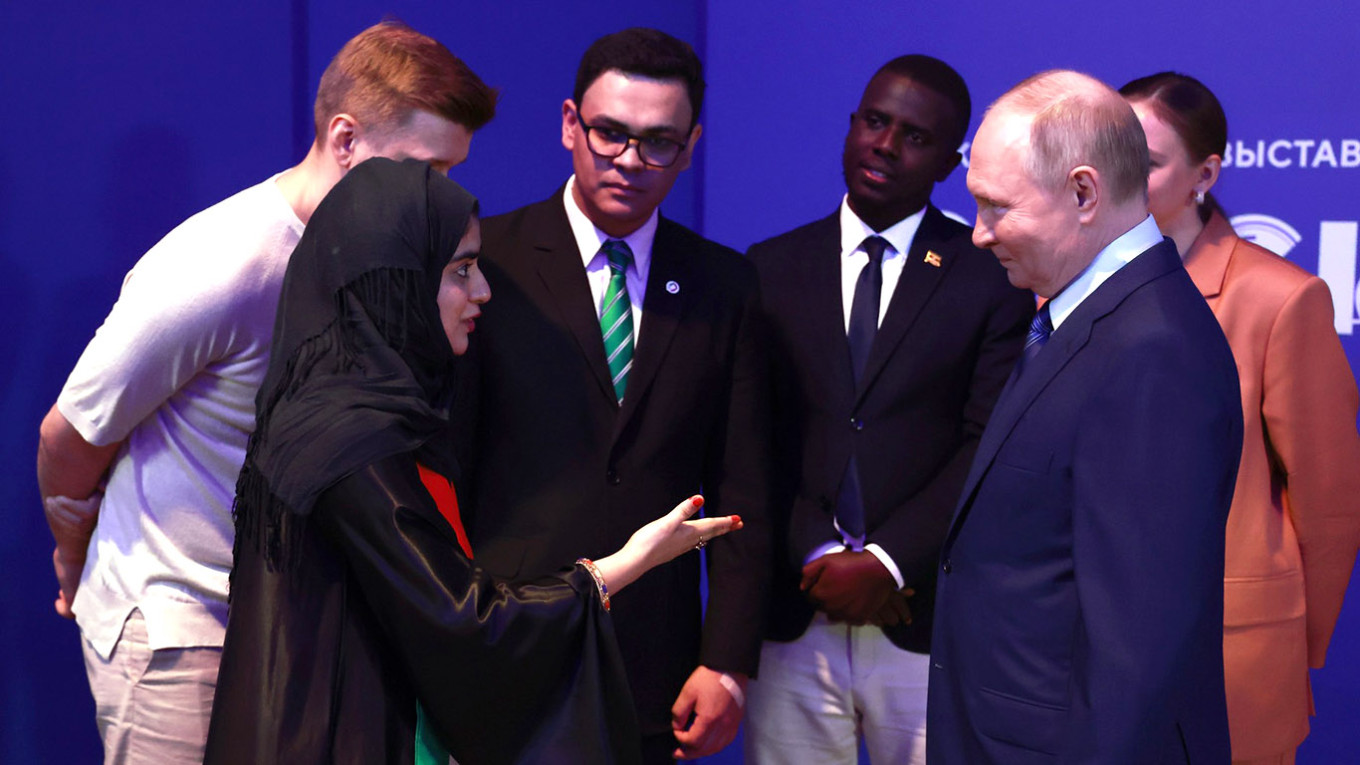
What is happening in Muslim-majority republics?
Last week, the Coordination Center of Muslims of the North Caucasus advised the region’s believers against wearing the niqab, deeming it to be inappropriate attire for “modern Russian realities” that “causes practical harm to Muslims by threatening discord in interreligious and interethnic relations.”
Local religious authorities in the Caucasus republics of Dagestan, Karachay-Cherkessia and North Ossetia followed suit with the region’s chief religious authority and introduced a temporary ban on the niqab, whilst Kadyrov’s regime in Chechnya has been waging a crackdown on the garment for nearly half a decade.
However, Islamic studies scholars point out that not all Muslims are bound to follow fatwas — a ruling on a point of Islamic law — issued by regional authorities.
“This is a recommendation. Its credibility and implementation depend on how much authority the body that issued it has,” Leonid Syukiyaynen, an expert in comparative and Islamic law, told regional news outlet the Caucasian Knot.
“The muftiate does not have any leverage to force everyone to follow this decision,” he added.
Meanwhile, several high-profile religious figures in the republic of Tatarstan have spoken out against banning the niqab.
“Banning the niqab in our country will definitely drive a wedge between Russia and the Islamic world,” Deputy Mufti of the republic Rustem Valiullin was quoted as saying by a local news agency.
“Our closest ally, Iran, has canonized the niqab. Therefore, we risk losing friendly ties with this country. Relations with Afghanistan will also cool down [if the ban is introduced],” he added.
A Message from The Moscow Times:
Dear readers,
We are facing unprecedented challenges. Russia's Prosecutor General's Office has designated The Moscow Times as an "undesirable" organization, criminalizing our work and putting our staff at risk of prosecution. This follows our earlier unjust labeling as a "foreign agent."
These actions are direct attempts to silence independent journalism in Russia. The authorities claim our work "discredits the decisions of the Russian leadership." We see things differently: we strive to provide accurate, unbiased reporting on Russia.
We, the journalists of The Moscow Times, refuse to be silenced. But to continue our work, we need your help.
Your support, no matter how small, makes a world of difference. If you can, please support us monthly starting from just $2. It's quick to set up, and every contribution makes a significant impact.
By supporting The Moscow Times, you're defending open, independent journalism in the face of repression. Thank you for standing with us.
Remind me later.


